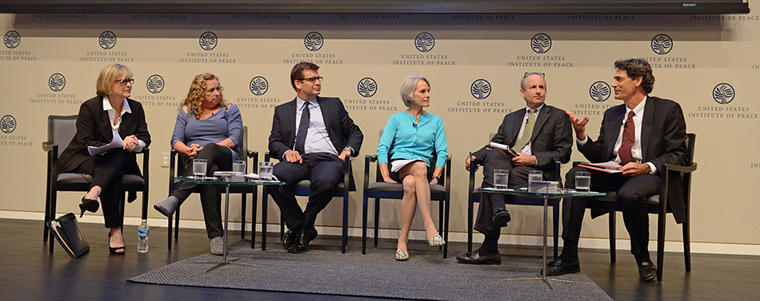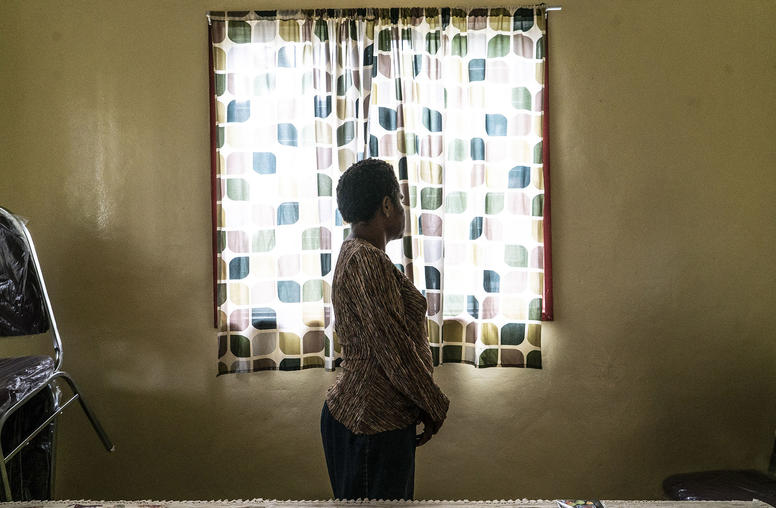Second Global Symposium on Gender in Media
The Geena Davis Institute on Gender in Media, the United States Institute of Peace, Women and Girls Lead and ITVS co-hosted an event at USIP on September 23rd on the role media plays in shaping positive and negative gender norms and expectations, with a particular focus on conflict-affected and fragile states around the world.

The Geena Davis Institute on Gender in Media, the United States Institute of Peace, Women and Girls Lead and ITVS are leading the discussion on the role media plays in shaping positive and negative gender norms and expectations, which is increasingly critical in conflict-affected and fragile states around the world. The “Second Global Symposium” brought together thought leaders, entertainment executives, business decision makers, scholars, non-governmental organizations and journalists to learn about the findings from a ground-breaking global study on the portrayal of women in film.
The Gender Bias without Borders study investigates 11 countries’ locally produced films including: Australia, Brazil, China, France, Germany, India, Japan, Russia, South Korea, United Kingdom, and United States. This quantitative study examines a number of key data points particularly representation comparisons, portrayals, attributes, sexuality and careers. Following a presentation of the study findings, two high-level panel discussions focused on the global impact of films on women and girls as well as best practices to drive change.
Welcoming Remarks
- Kathleen Kuehnast
Director, Center for Gender and Peacebuilding, USIP - Madeline Di Nonno
Executive Director, Geena Davis Institute for Gender in Media
Keynote Remarks
- Geena Davis
Founder and Chair, Geena Davis Institute for Gender in Media
Special Remarks
- Stacy Smith
Associate Professor, USC Annenberg School for Communication and Journalism
Keynote Remarks
- Patricia de Stacy Harrison
President and CEO, Corporation for Public Broadcasting
Panel 1: Stories From Around the World: Empowering Women and Girls Through Film
- Abby Disney
Executive Producer, The Trials of Spring - Elizabeth Frank
Chief Content and Programming Officer, AMC Theatres - Jamie Gordon
Executive Producer, A Path Appears - Angela Guy
Senior Vice President, Diversity and Inclusion, L’Oreal - Amelia Hanibelsz
Founder Tell2Productions, Advisory Council Film Aid International - Carla Koppell
Chief Strategy Officer, USAID - Stacy Smith
Associate Professor, USC Annenberg School for Communication and Journalism - Megan Beyer, Moderator
Founder and Chair, Women Leaders Project
Panel 2: Hollywood’s Impact on Societies in Conflict: Hyper Men and Passive Women on the Big Screen
- Abby Disney
Executive Producer, The Trials of Spring - Andrew Levack
Deputy Director of U.S. Programs, Promundo - Jill Dougherty
Public Policy Scholar, Woodrow Wilson International Center for Scholars - Sheldon Himelfarb
Director, Media, Technology & Peacebuilding, USIP - Marc Sommers
Consultant and Visual Researcher, African Studies Center, Boston University - Kathleen Kuehnast, Moderator
Director, Center for Gender and Peacebuilding, USIP
Closing Remarks
- Geena Davis
Founder and Chair, Geena Davis Institute for Gender in Media



